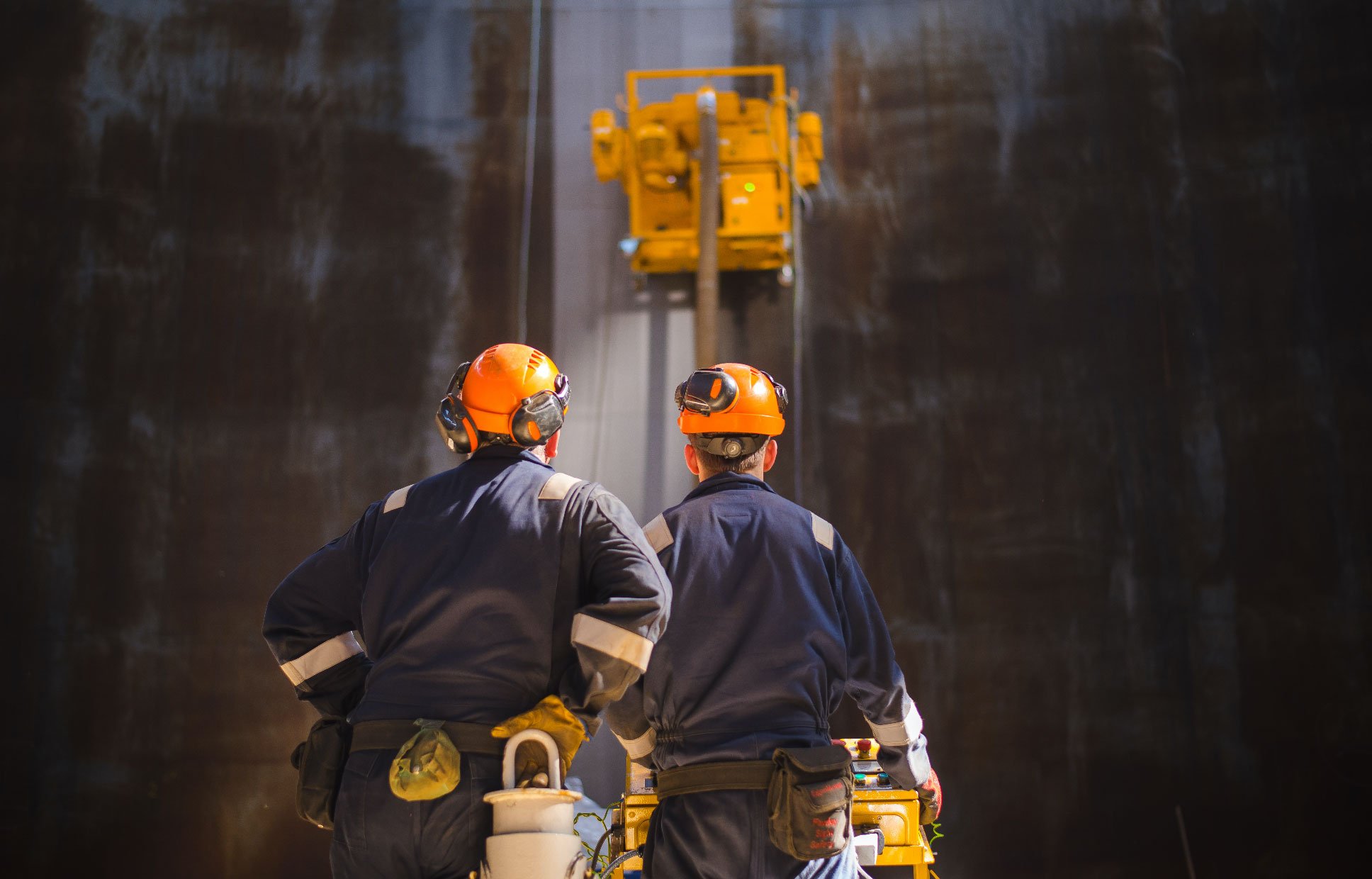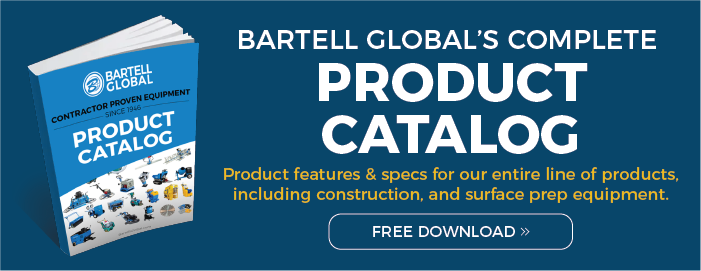How many times have you made a decision to purchase or invest in something over another, because of price? We've all done it, and we’ve all had those moments of regret when the inciting initial cost savings turns out be a long term headache. Sometimes spending a little extra for a quality product is well worth your investment in the long run, sometimes it’s not.
In our industry price is often a deciding factor when purchasing a piece of equipment, and it should be, because we’re talking about thousands of dollars and heavy duty equipment. Although there are many pieces of construction or surface prep equipment that vary in price but will produce the same or similar results regardless of price, there are also many pieces of equipment that have a higher price point because of the high quality construction and materials that go into making them the best on the market. Preference is also a large factor but quality will be the most impactful long term on your business. So how do you know what to choose?
Well - it’s not that simple, but let’s try and simplify it…
First, Do You Have a Buying Process?
Processes are often one of the major influential factors that can make or break the growth potential in your business. In one of our previous blogs we talked about how important implementing quality processes are for your business and building a great team, but it’s also important to understand that includes buying equipment, regardless if you're a Contractor, an Equipment Dealer, a Rental house etc. When you’re potentially investing thousands of dollars in something, it only makes sense to have some sort of a buying process to ensure you’re making the best possible decision to benefit your business.
What Might that Process Look Like?
Every company’s buying process will look a little different for obvious reasons, but the general concept will be the same.
Once you’ve come the point of realizing that you need to purchase a new piece of equipment, you should start your process with Quality Research. That doesn’t mean doing a quick google search and making a decision based on the first page or article you read. That may seem like a no brainer but you’d be surprised how often it happens.
- Read reviews, look at various options, sizes etc.
- Talk to people in the industry
- See what your competitors are using or selling and why? Is there better equipment out there?
The more educated you are the better prepared you can be.
You’ll also want to research the manufacturer or company you’re purchasing from. Relationships are everything. When you’re investing large amounts of your hard earned money in a piece of equipment, you’ll want to trust that the people you’re buying from are honest, loyal, and have integrity. You do not want to mess around with anyone you can’t trust. Having a genuine trusting relationship with a brand or manufacturer can be a great for price or deal negotiations, ideal for when you have questions or concerns, and important when problems arise. You want to know they are equally invested in building that relationship with you. - Do they come to visit you? Are they willing to do demos? Do they return your calls quickly? Are they eager to help make your buying process as smooth as they possibly can? Are they honest or are they just trying to make a sale? There are many important factors to consider. That way you know you’ll get exactly what you pay for.
What’s Next?
Take the equipment information you've collected during your research and consider all of the important factors… Product Specs, Price, Quality of materials used in manufacturing, Production Rates, Maintenance, Tooling Costs, Size, Manufacturer/ Company experience etc.
All pieces of equipment will differ in one or more of these areas so it is important to decided which ones are top priority for you and your business.
Although many people look at price as top priority it’s important to consider other factors that might be more beneficial long term.
If you buy a piece of equipment that has a lower price but has lower production rates, is lesser quality and not as durable, you’ll end up spending more money long term in maintenance and possibly even replacing the whole piece of equipment sooner than planned. Although you feel like you’ve scored a good deal initially, the possible problems that follow will be pricier and aggravating.
On the other hand, if you’ve found a piece of equipment that has a higher price point, BUT will ensure the best productions rates, top quality, maximum durability etc. then long-term, the money you’ll save in maintenance and time will outweigh the initial cost.
For Dealers this applies as well. You want to sell your customers quality equipment. You want to offer them the best and the most efficient.
If quality and efficiency are your top consideration factors and price is secondary, you’ll end up with more money in your pocket and will experience less issues and headaches with the machine long term.
BUT…
Having said that, it’s important to note that just because something cost more, it doesn’t mean that it is better. That’s why it is so incredibly important to consider all factors in your buying process. If you can find a quality machine at a lower price- that is a bonus, but if you have to pay a little more for the best machine that will ensure a better payback and more money in your pocket long term, it may be wise to consider figuring out how to save up and expand your budget.
Ultimately you want to make sure your investment isn’t based off of price, but also quality. This will ensure that you’ll be happier with the product, and will keep more money in your pocket long term.


 By
By 